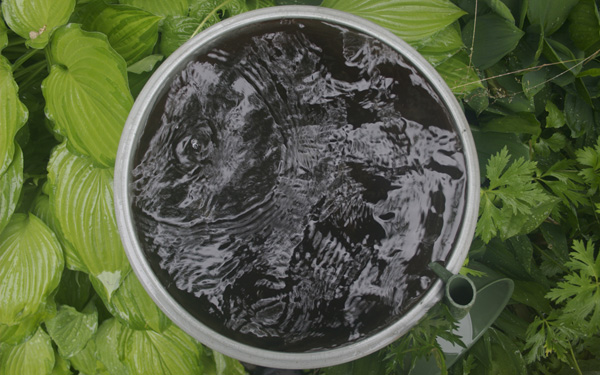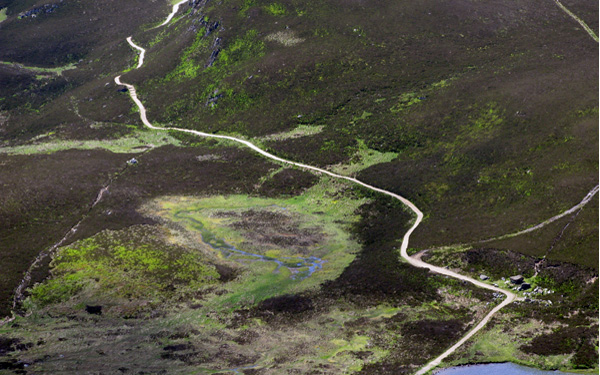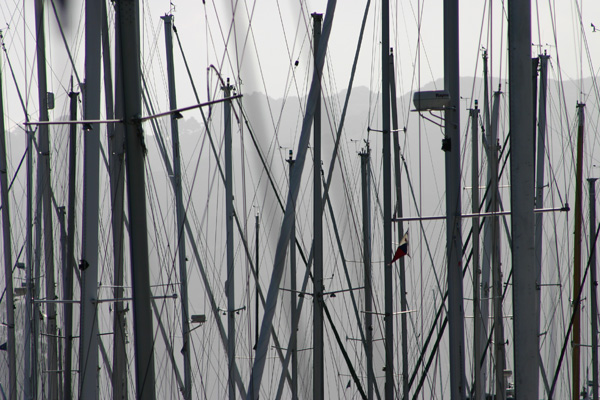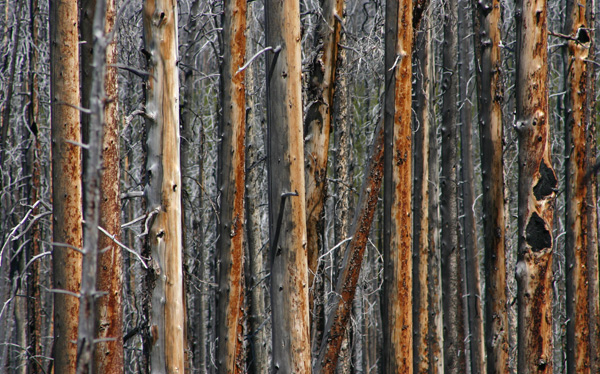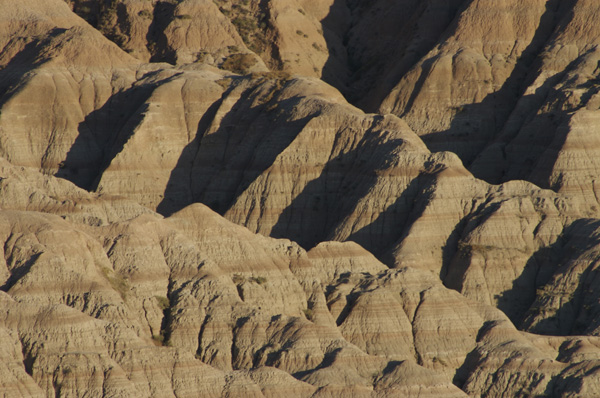Advanced Electroacoustic Music (TECH203 : ongoing, fall semester)
Contemporary electroacoustic composers and computer musicians wear many hats: composer, performer, programmer, critic, theorist, researcher, cultural musicologist, etc. Tech 201 and 202 provide a solid foundation in many of these areas, particularly electroacoustic music history and studio hardware and software. Tech 203 explores more deeply the musical, technological, and scholarly tools currently available to electroacoustic composers. Some topics will be completely new to you, and others will be related to your previous study in TIMARA. While we will deal extensively with certain hardware and software such as Max/MSP and ProTools, the course is not “about” said tools. Rather, it is organized based on musical/scholarly practice and approaches, each of which will inevitably draw on a variety of tools. All topics will be approached through a combination of reading, listening, and creative work with the ultimate goal of expanding your compositional resources and scholarly vocabulary.
Private Composition Lessons (PVST : ongoing)
In weekly, hour-long meetings, we consider all aspects of composing, including compositional starting points and processes, technology-based tools and techniques, and interdisciplinary and collaborative work. Lessons typically culminate in the Junior or Senior TIMARA Recital, though many other outcomes are encouraged and supported, including professional conference submissions, scholarly projects, and graduate school applications.
Composition Studio Class (PVST : ongoing)
This weekly gathering of all students currently studying in my composition studio is devoted to group discussion, feedback, and critique. It is a chance to present in-progress work to an informed group of peers, ask and answer specific questions, and get better acquainted with your TIMARA colleagues. We will, occasionally, have guest presenters and/or combine with the studio classes of other TIMARA or Composition Faculty.
Contemporary Chamber Music Coaching (ENS : ongoing)
Collaborations: Dance, Music, & Media (TECH350/Dance394 : fall 2016)
With Carter McAdams, Dance Department.
This upper-level workshop will focus on the intergration of dance, music, and media. Topics of particular focus will likely include "dance for the camera,” site-specifc performance, and real-time music/movement interactions. We will examine work from the repertoire through viewings, lectures, and discussion. Class projects will be realized in collaborative teams and will draw on both fixed-media and real-time techniques in combining electroacoustic music, movement, and digital media.
Performance Technology (TECH204 : ongoing, spring semester)
TECH204 focuses on using the many tools and techniques that you acquired in 201-203 in situations outside of the studio. In particular, we explore three areas in which you are likely to be working (either already or in the near future):
1) Composing/performing with acoustic instrument(s) plus electronics.
2) Composing/performing sound (and possibly video) for dance and/or theater.
3) Creating virtual, gallery-based, and/or site-specific installations.
The primary goal is for you to develop a personal practice in these areas, so while we will examine existing repertoire and certain “standard” approaches, it will be up to you to define and shape your goals and outcomes (with help and feedback from the rest of us, of course). You will be asked to share your work-in-progress regularly and will likely work with others in the class on some occasions. You are expected to attend all TIMARA junior/senior recitals as well as guest concerts during the semester, as these will provide relevant models and points of discussion for the class. When possible, those giving the concerts will visit the class to further explain their tools and processes.Interdisciplinary Game Design (TECH350 : spring 2016)
Interdisciplinary Game Design is a collaboration with Tom Wexler in Computer Science. There will be two sections of the course—CS361 and Tech350—that will spend about half the class time together and will work collaboratively on projects.
The Tech350 group will consider game design from a sonic/musical standpoint and will touch on such topics as indeterminate and aleatoric composition, visible sound design, sound spatialization, and generative/reactive systems. We will regularly workshop ideas and build a set of tools and references within the group. Students in the seminar will be partnered with those in the CS section for both small and large projects. The two classes will sometimes meet as a single group and sometimes meet/work independently.Electroacoustic Interpretation & Performance Practice (TECH170 : ongoing, fall semester)
This course will serve as a performer-focused introduction to the interpretation of electroacoustic music. We will examine compositions scored for instrument(s) with CD playback, instrument(s) with live electronics, and instrument(s) with other media. In addition to adding such pieces to your repertoire, you will learn the necessary technology to bring them to life in performance. We will cover the relevant uses of microphones, mixers, speakers, and computer software, while also attending to important theoretical and conceptual approaches to electroacoustic performance practice. The course will be particularly relevant to those interested in preparing electroacoustic works for their junior or senior recital and/or expanding their repertoire list for post-Oberlin performance opportunities.
Soundscapes and Sonifications (TECH350 : spring 2012)
Composers have long been fascinated with nature, using it as inspiration, motivation, and material in a variety of musical forms, but the second half of the 20th century saw the emergence of deeper relationships between artists and their natural surroundings. Set into motion by the writings and music of John Cage, R. Murray Schafer, Pauline Oliveros, and others, and further accelerated (perhaps ironically) by recording and computer technologies, “Ecoacoustics” (and related fields such as Acoustic Ecology and Soundscape Composition) is now an active creative space. This course will explore in detail the work of ecoacoustic composers, particularly Hildegard Westerkamp, who will be on campus in March. We will discuss field recording and site-specific installation, and we will draw on other artforms wherever possible, including multiple trips to the Allen Memorial Art Museum. Additionally, we will explore and design sonification strategies for translating real-world data (some from “nature,” some from humans, some from elsewhere) into sound. Students will be asked to complete compositional, technical, and scholarly projects, and TIMARA and Composition majors are likely to have the most context for our work. However, I expect pre-existing expertise to vary and welcome interest from students across disciplines.
Collaborations: Dance, Music, & Media (TECH394 : spring 2010)
With Carter McAdams, Dance Department.
This upper-level workshop will focus on the integration of dance, music, and media. Of specific interest will be “dance for the camera,” which we will examine through viewings, lectures, and discussion. Class projects will be realized by collaborative teams and will draw on both fixed-media and real-time techniques in combining electroacoustic music, movement, and digital media.
Winter Term (ongoing)
2014: Composition residency with seven students at the Banff Centre
2013: Collaboration and Concert Tour in Norway with Chartreuse Trio
2012: Soundscapes and Sonic Narratives in Prague: Three-week residency with 12 Oberlin students at the Prague Film School
Ongoing: TIMARA Winter Term Class: 20-30 Students
Advising and supervision of individual projects
Private Readings (ongoing)
Advising and supervision of individual projects and College Honors projects.
Landscape/Soundscape/Wordscape: How Place Becomes Text (xArts 101 : spring 2009)
With Nick Jones, English Department.
Poets, composers, painters, and other creative artists have long been fascinated with nature, using it as inspiration, motivation, and material in a variety of artistic contexts. From landscape painting to pastoral poetry to soundscape composition, artists of all media have sought to codify the experience of place in tangible form. This class will offer a cross-disciplinary examination of these place-based creative processes and their resultant texts. We will draw on poetry, fiction, and theoretical texts, as well as acoustic music, electroacoustic music, and digital media. We will make extensive use of the AMAM collection in exploring the interpretation and invention of place in the visual arts. The course will be team-taught by faculty from the TIMARA Department (Swendsen) and the English Department (Jones), with frequent classes conducted by the AMAM’s curatorial staff.
We will consider questions such as: How and why did artists document the natural world prior to the age of recording media? How do artists from different disciplines interpret similar real-world environments, or similarly, how does the interpretation of a particular environment change over time? How have social, cultural, and political changes been embedded in the landscape and its interpretations? How did an emerging cultural environmentalism in the late 20th century provide new connections between the natural world and creative artists? In addition to scholarly engagement with the course material, students will undertake their own creative work during the semester (though no prior experience in this regard is required).
The Future Sounds of Now (TECH350 : fall 2008)
This upper-level workshop will focus on the work of three leading figures from the field of electroacoustic music: Simon Emmerson, Alvin Curran, and Laetitia Sonami. Each will visit Oberlin for a two-week residency during the semester. Participants will work closely with the guests on special projects in both group and individual settings. Class members will also assist in concert production and documentation. Between residencies, we will prepare for upcoming visits by examining the music and writing of each composer. Following visits, we will reflect on the experience through conversation and writing. This is an extraordinary opportunity to work with three wonderfully diverse and influential artists.
Real-time Techniques (TECH202 : spring 2008)
The computer plays a vital role in all aspects of contemporary music and is increasingly ubiquitous in live performance situations. As composers, it is our responsibility to take the lead in investigating and expanding the relationships between machine and music. In particular, we must examine the ways in which computers can meaningfully augment our ability to communicate with performers and listeners. Our work will deal extensively with certain software, such as Max/MSP, but the course is not “about” said tools. Rather, it is organized based on creative practice and approaches, each of which will inevitably draw on a variety of tools. All topics will be approached through a combination of reading, listening, and creative work with the ultimate goal of expanding compositional resources, technological proficiency, and scholarly vocabulary.
eCamp: Experimental Collaborations in Art, Music, & Performance (TECH068 : spring 2008)
With Julia Christensen, Art/TIMARA Department.
Digital Audio Skills (CNST 160: spring 2010)
Sonic Arts Workshop (ongoing, summer)
This workshop focuses on the composition of electroacoustic music and is geared toward high school students interested in expanding their technical and creative resources. Topics will include digital audio editing and manipulation, real-time computer music performance techniques, and discussion of pieces from the field's growing repertoire. The program will cover issues of interest to young composers heading towards conservatory studies and also non-musicians who are interested in experimenting with electronic and computer music.
Oberlin Guest Lectures (ongoing)
Lectures and workshops on various topics for classes in Music History, Enironmental Studies, First Year Seminar Program, Allen Art Museum, and other departments/groups.
Local Community
Lectures, workshops, demonstrations and special projects with participants ranging from elementary school students to residents of Oberlin's Kendal Retirement Community. Community collaborations and programns with GroundWorks DanceTheater and The Laurel School in Cleveland.
Current TIMARA Students can be found on the TIMARA Department Website
Former Students*:
• Tom Arsenault
• Benjamin Bacon
• David Bird
• Katie Buono
• Alex Christie
• Lisa Chung
• Monisola Gbadebo
• Mitchell Herrmann
• Adam Hirsch
• Hunter McCurry
• Matt Omahan
• Alexander Overington
• Michael Rosen
• Calder Singer
• Eli Stine
• Ron Shalom
• Allison Swaim / transom site
• Asha Tamirisa
• Jennifer Torrence* Please e-mail me if you have a site to add or update!
